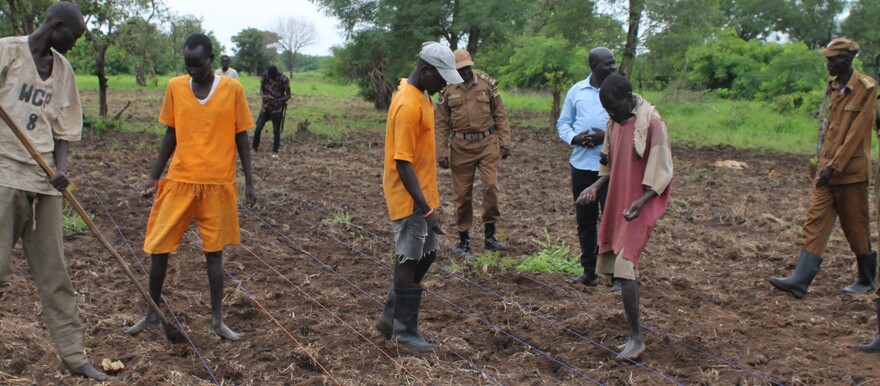In a groundbreaking initiative to enhance food security within Wau Central Prison, the Administration of the facility in Western Bahr el Ghazal State has embraced farming, allowing them to produce sufficient food to feed over 800 inmates.
The Thurmajok prison farm, established in 2017 through the joint efforts of the United Nations Mission in South Sudan (UNMISS) and the United Nations Food and Agriculture Organization (UNFAO), has proven to be a pivotal source of sustenance for the inmates.
Gen. Fidele Majok, the Acting Director of Wau Central Prisons, revealed the impressive yields achieved through their farming efforts. He stated, “Last year, they produced 120 bags of groundnuts and 100 bags of sorghum. When there is a scarcity of food, as was the case two months ago when the contractors failed to provide the necessary supplies, we resorted to using our own sorghum and groundnuts to feed the prisoners.”
Joseph Banda, the UNMISS Correctional officer in Wau, emphasized the significance of the farm project. He explained, “The mission is assisting the prison in training, rehabilitating, and reforming the inmates. Through projects like this one, food can be grown to supplement what the government provides for the prisoners when government contractors face challenges in delivering supplies due to payment issues.”
The primary objective of the Thurmajok prison farm project, as highlighted by Muhammed Tafiqul Islam, the head of FAO Field Office in Wau, is to bolster food security in the state.
He reiterated the commitment of FAO to replicate similar projects in other regions of the country, emphasizing that sustained production from the farm could lead to nutritious surplus food that can be sold in the market, benefiting the inmates and the wider community.
However, the increasing number of inmates within the Wau Central Prison remains a pressing concern. Banda expressed his worries, stating, “The idea is not just to provide food for prisoners but also to decongest the main prison. Currently, Wau State Prison, originally designed to house 200 inmates, is now accommodating 800 inmates.”
The successful implementation of the farming initiative has brought hope to the prison administration and inmates alike. With a dedicated effort to continue their agricultural pursuits, the prison authorities aim to secure a self-sufficient food supply, improving the well-being of the inmates and alleviating the burden on government resources.




